
A few years ago, a friend who was at the time a higher-up of a respected radio company called me after reading that today’s blog post. He admitted to me it was well-written and conceived. But he confided this to me:
“Our CEO thinks your blog is just an excuse to create daily 4-alarm fires for radio.”
And to that I responded:
“There’s actual shit burning.”
Here we are after some amazingly challenging years, fueled by the way things were already trending, and fueled by COVID, and radio’s challenges haven’t abated. If anything, they’ve intensified. There’s more competition, more disruption, and still a lot of fallout from the pandemic. While many broadcasters eschew the word “radio” in favor of “multimedia,” the fact is, broadcasters were generally very late to the digital game, with just a handful of exceptions.
It’s not like the signs weren’t there.
A number of us spent some uncomfortable years in the “digital wilderness,” pointing out the trends in listening, viewing, and gadgetry. Speaking from our vantage point at Jacobs Media, our Techsurveys which launched way back in 2005 sent crystal clear messages that consumption and content sources were changing, and that broadcasters needed to think – and strategize – past their transmitters and towers.
But the pushback was palpable. There was the old “analog dollars/digital dimes” excuse. That is, if we can’t monetize it, why do it?
Then there was the “let’s wait to see whether this is a trend or a fad.” That old saw was used again and again – with iPods, smartphones/apps, streaming, podcasts, smart speakers, TikTok and beyond. Did every tech innovation become “the next big thing?” Of course not. But as an NBC-TV executive told Paul at CES a few years ago, “Every time a new social media platform emerges, we sign up, sign on, and engage with it. You never know.” No, you don’t.
There was the “Our retail landscape won’t be impacted by mega-tech like Google or Facebook. We’re in Des Moines. They’ll never come here.” In fact, one CEO dismissively uttered “Google Schmoogle” when presented with the scenario these companies would one day eat radio’s lunch – dinner, breakfast, and brunch – even in small markets all over the U.S.
And then my favorite: “Why aren’t you guys supporting radio?” As if pointing out the competitive reality and truth was somehow blasphemous, even traitorous to the industry that helped me launch the Classic Rock format, and put my kids through college.
To spur more attention to the digital threat/opportunity, we even came with those familiar green wristbands emblazoned with W.T.D.A. – or “What’s the digital application?” – which we hoped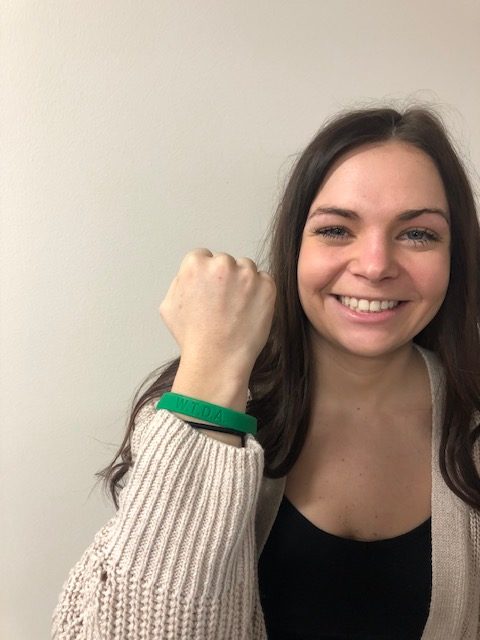 would serve as that “string around your finger” reminder to include promotions, sales, marketing, and content creation in the digital space. We sent thousands of them to our clients, as well as any broadcasters who requested one – or a dozen – because it was so clear to us that digital was radio’s ultimate future.
would serve as that “string around your finger” reminder to include promotions, sales, marketing, and content creation in the digital space. We sent thousands of them to our clients, as well as any broadcasters who requested one – or a dozen – because it was so clear to us that digital was radio’s ultimate future.
Here we are in 2022, and now everybody has bought in. Seemingly multiple companies in markets are morphing into digital agencies, offering SEM, SEO, and other products many sales reps struggle to market to advertisers. Yes, everyone’s streaming, but the experience is (mostly) substandard. Most stations now have apps, but in general, they’ve been poorly marketed and sold. And few have actually had much in the way of success with podcasting, despite billions now being thrown at this category.
And yet somehow, more and more stations are profiting – perhaps in spite of themselves – by the coming of the digital media age. Just imagine how much more money and how further along so many companies would be if they’d actually gotten started in 2019, 2015, 2010, 2005, or even earlier.
I throw this out as a preamble – not as an “I told you so” – to the next missed opportunity, and one where radio will not likely to be able to play catchup.
No surprise – I’m talking Generation Z, defined (and it varies) as those born between 1997 and 2012. In other words, young people between the age of 10 and 25. You don’t need a consultant to tell you these folks don’t have a whole lot to do with radio. We just wrapped up the field work for our brand new Techsurvey. Of the approximately 30,000 respondents – most of whom are members of radio station email databases – only 1% of them or about 300 people – are in the Gen Z group.
The medium’s staunch defenders will argue radio’s reach among Gen Z is much higher than that. But if you step back, teens are often stuck in situations – like driving with their parents – where the radio is on, like it or not. But if we’re talking about engagement – actually being invested in what they’re listening to and enjoying it – these Techsurvey numbers tell a more important story.
So, what do Gen Z’s think of radio?
Don’t look at me, I have no clue. With a sample size of 300 people, there’s not much I can tell you. And the vast majority of people programming, selling, and managing stations can’t tell you either. That’s because most radio managers haven’t actually commissioned a research study that included teenagers in decades – if ever.
Looking at this Statista chart, the data clearly points to the importance of Gen Z right now – not in five years or by 2030. They are nearly the biggest generation of them all, and they’re poised for a growth spurt:
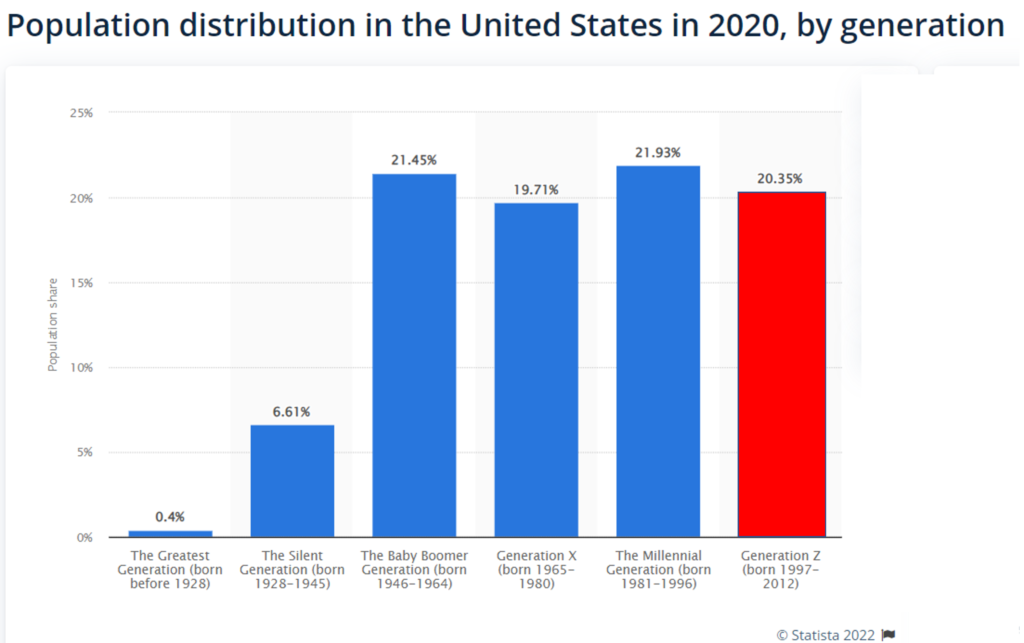
Sure, the Baby Boomers are still a force to be reckoned with. But by 2030, every single member of that influential generation will be 65 or older. Or dead.
And what of the younger generations? Here’s the trending trajectory over the last decade. These young consumers – Gen Z (and younger) and Millennials combined now make up more than half the population – and climbing. As we get closer to 2030, Gen Z will make up nearly a third of the total workforce. 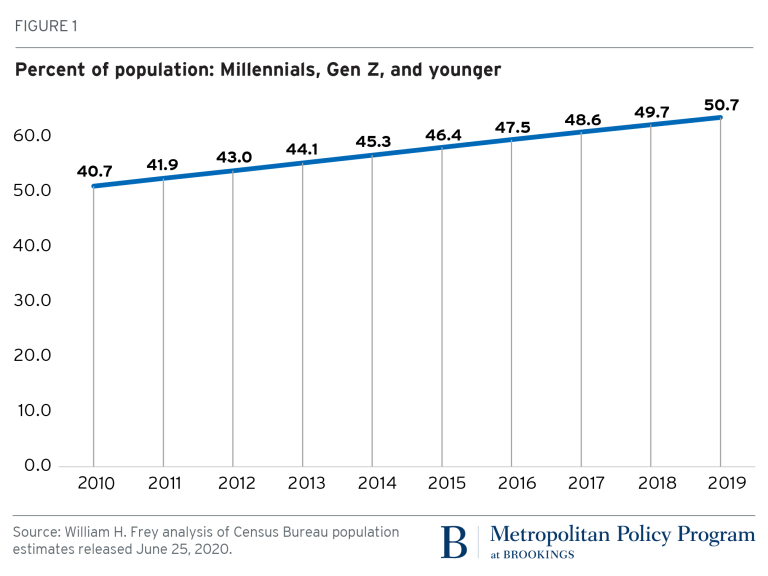 The advertisers of the world are working hard not to miss this moment. Gen Z is a prime topic of conversation each and every day as marketers vie to understand this influential cohort of consumers. Each and every day, trade publications and mainstream media are taking on the challenge of understanding Gen Z, and ensuring their products and services are aligned to appeal to millions of young people.
The advertisers of the world are working hard not to miss this moment. Gen Z is a prime topic of conversation each and every day as marketers vie to understand this influential cohort of consumers. Each and every day, trade publications and mainstream media are taking on the challenge of understanding Gen Z, and ensuring their products and services are aligned to appeal to millions of young people.
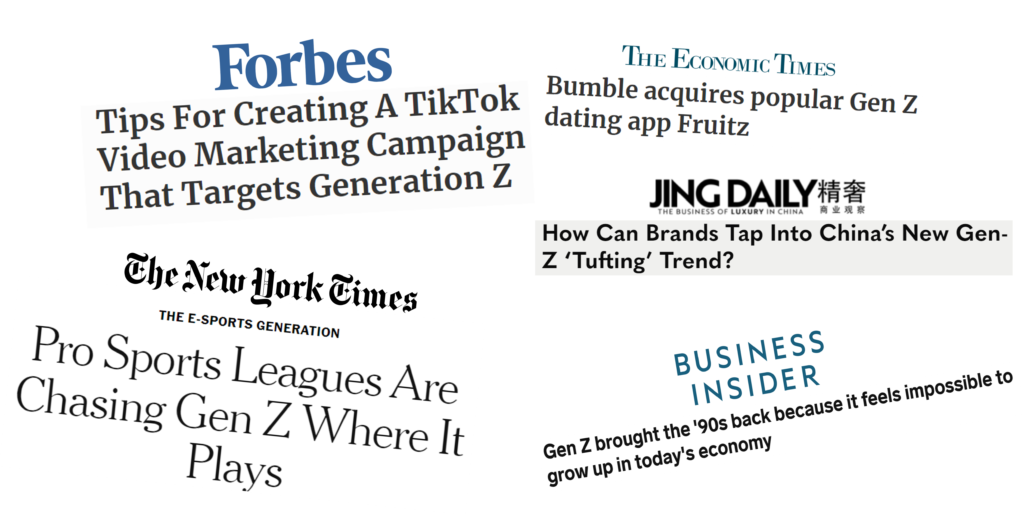
Now, I know why many of you are reading this arms folded, perhaps thinking the same thought that’s convinced broadcasters not to bother with Gen Z:
Radio cannot effectively monetize those under 25, much less teens.
And here are my two responses:
- We did once – and very effectively. Teen advertising buys were a vital part of radio’s total ad mix.
- Many radio operators said the same thing about digital (and some still are).
But here we are in 2022, rapidly becoming an AARP medium, and no strategic plan to counteract the rapidly aging process of radio’s traditional audience. It is radio’s equivalent of the climate crisis. We’re heading right toward the iceberg, and sadly, the industry at large is moving full stream ahead.
If we’re looking for reasons why young people gave up on radio years ago, let me share with you a comment I received on yesterday’s post from a former client and a frequent commenter to our blog:
“Young people haven’t been gravitating away from radio, they’ve been made to feel unwelcome and have been all but asked to leave. When a restaurant takes someone’s favorite dishes off their menu, they tend to go to other restaurants. And its not as if radio doesn’t have a cheap and easy tool for testing new formats, music and ideas. There’s a pretty deep well of translators in most markets where things could be tried out with little risk. Needing that .6 as the third or fourth entry into an existing format to bonus and bring buys in is a really sad excuse for not experimenting with frequencies most bought for $50-100K.”
And that sums up the dilemma, but perhaps also offers a solution. Radio, from its inception, has been a “big tent medium.” There was something for everybody.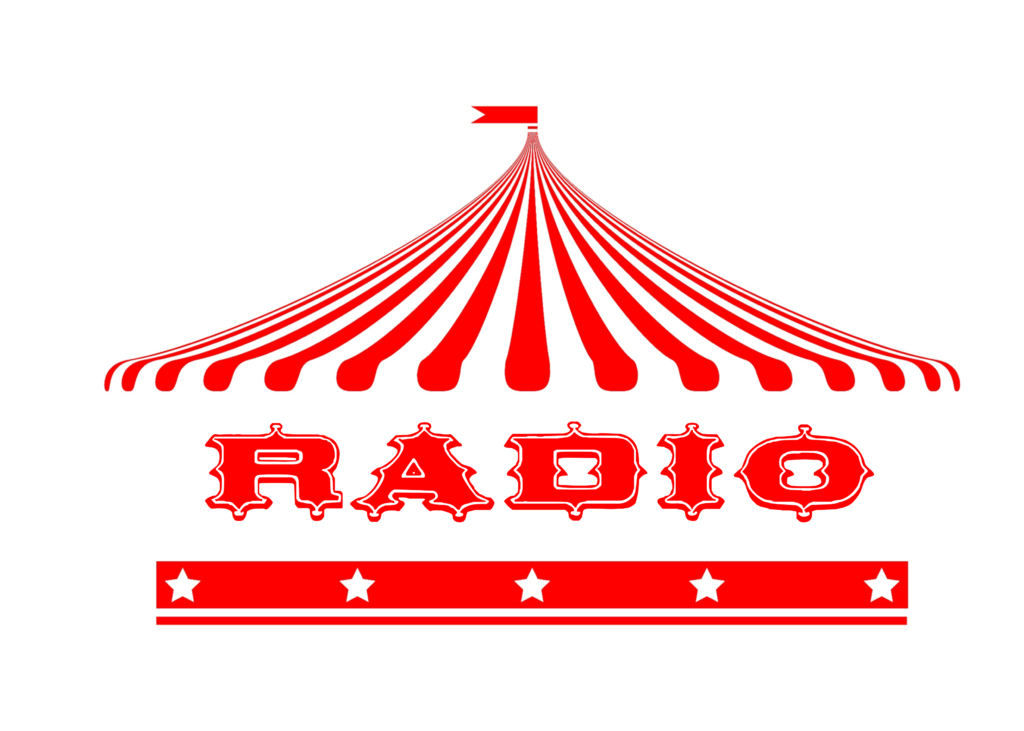
The critical mistake was giving into ad agency demands rather than marketing more diverse audiences based on their value. When you turn listeners away because they’re too young, they’re too old, or they like a style of music that may not deliver carloads of desirable demos, the medium limits itself, becomes more of the same, and fails to deliver a diverse audience.
So, what about those translators filling in a few zip code holes, but probably not performing as promised?
Or those FM “runts of the litter” – those perennial losers that change formats every few years?
If enough owners agreed the “youth crisis” is as big a challenge as the “digital revolution” turned out to be, a bona fide effort could be made to court those under 30, even those who aren’t yet of legal age – but still spend money and (more importantly) will grow into the medium, just as we did when we were kids.
Some of you are already shaking your heads, insisting it’s too late. Kids today don’t want a curated, real time, linear experience. No, they’re all about on-demand – getting what they want, when and where they want it. They’d never spend time listening to personalities geared toward them, programmed by “showrunners” not much older than themselves.
But that’s precisely how FM radio in the U.S.A. took hold and changed the way teens of that era listened and discovered new music and new artists.
 “Teen radio” in 2025 might not sound anything like radio that targeted teens in the 1960s or 1970s. Maybe we’d even call it something else. And that’s OK. It shouldn’t be dreamed up by us veterans who have been doing it much the same way for decades now.
“Teen radio” in 2025 might not sound anything like radio that targeted teens in the 1960s or 1970s. Maybe we’d even call it something else. And that’s OK. It shouldn’t be dreamed up by us veterans who have been doing it much the same way for decades now.
How would teens react to a newly designed real-time medium that perhaps led with mobile devices rather than transmitters and towers?
The other day we talked about the idea of “searchable radio.” What impact could that have on how young consumers find what they’re looking for?
How could technical and programming innovations come together to present an audio option that actually has relevance to today’s (and tomorrow’s) teens?
At an NAB Radio Show some years ago, I was asked to put together a timely panel that might capture industry attention and generate healthy discussion. Much to the chagrin of some of the organization’s staff, my session was called “My 14 year-old thinks radio sucks.”
It talked about many of the same themes you’re reading about in today’s blog.
The year was 2000 – more than 20 Radio Shows ago.
I’m hopeful Joel Denver’s All Access Audio Summit and the newly designed NAB Show will be addressing radio’s “youth crisis” in sessions and panels. But in order to effect change in radio, the industry’s leadership will need to do more in 2022 than attend conferences.
If we were to update that session for this year’s conference, we might rename it “My 14 year-old doesn’t know what a radio is.”
Tick-tock.
- A 2020 Lesson?It Could All Be Gone In A Flash - April 24, 2025
- How AI Can Give Radio Personalities More…PERSONALITY - April 23, 2025
- Can Radio Afford To Miss The Short Videos Boat? - April 22, 2025




Another great thought starter today, Fred.
You broached this subject a while back…and I’m just stymied as to why there isn’t a national format for these kids!
Perhaps we should ask ourselves WWRSD?
(What would Rick Sklar do?)
Rick understood the assignment.
If radio is to get the youngsters “back into the tent”–which it must if radio is to survive much longer–an idea Fred bruited a few months ago remains a potent avenue: Fire up your HD exciter (pardon pun) and invite some of those kids into the station to program your HD2 or HD3 stream. You can bet they’ll tell everyone they know to find them there. (You’ll also make Xperi happy.) Radio will be a relic in a few years unless it becomes “cool” again. It can be done.
I’m reminded of the line “you miss 100 percent of the shots you don’t take.”
Radio has become too “safe” and has steered clear of taking risks. That’s one of the problems. You make a very good point about the frequencies that underperform that could be used to try new, innovative things.
It feels like a lot of broadcasters are just throwing in the towel. Ok, so ride it out a few more years by targeting the upper demos. But what happens in a few years when Gen Z becomes the most coveted, advertiser-friendly demo and they don’t listen to radio?
I’m guessing that’s when there will be a massive “fire sale” on FM frequencies and the FM dial is operated primarily by churches and community groups. Sad to think that could become the reality.
Fantastic read, as always, Fred. Thanks for bringing these points to the table.
I hope you’re scenario is not the case, Ronnie, but I share your concern. It is NOT someone else’s problem. If you work in radio today, it’s an industry problem. I appreciate the kind words.
While it’s definitely an apples/oranges comparison, I keep thinking about how Mexico City still has (and apparently can support) six full-power, core-metro FMs that are some version of CHR–plus one that’s a full-fledged EDM station (which serves as a co-owned flanker to one of those first six).
Some are flagships for national/international brands, while others are local; most have a bilingual music mix, while a couple are essentially English-only. But, while I can’t make a lot of generalizations, it does appear that they do all go after roughly the same demos. (Beyond that, a separate national CHR brand was carried locally on AM until recently–but was never any sort of real factor.)
Thanks, Eric. I’m hoping to hear from radio broadcasters around the world. Let’s compare notes. Are other countries being more proactive about engaging Gen Z in radio?
This is such a sad tale of inactivity. Unfortunately to gain GEN Z it would require broadcasters to actually get in a room and listen to their reaction to traditional radio.
Shit is burning.
Sad, indeed. It’s like we didn’t see this coming.
Great article! My take is that Gen Zs as a group don’t hate radio, but rather are simply oblivious to it. And why should they care about radio when radio doesn’t care about them? (and hasn’t for decades)
I’ve also found that many in “the biz” realize the industry’s future isn’t bright but are just hanging on, figuring they’ll be out of it before the final curtain.
It doesn’t have to be this way, as you point out. But any industry that fails to plant its “seed corn” isn’t battling to compete in the future.
I couldn’t agree more, Mark. As I said to another commenter, it is all of our responsibility to leave this industry in the best place possible when it’s time to call it a career. Sadly, some people don’t see it that way. Thanks for weighing in.
It seems that radios’ strategy is to run out the clock.
If that’s true, it’s a bad plan. The game may end in football, but in radio, it never does.
Anyone watch “1883” yet? It’s what seems to be a pretty accurate description of what people went through to get to the west. We don’t use covered wagons, or horses (for the most part). We’re not driving Model T’s. The 52 Ford Pickup is history. Evolution, and maybe revolution is in the offing for media. Gen’s “”X”, “Y”, “Z” and whatever will migrate to the media that suits their needs and what they’re most likely aware of. The transistor radio is dead. The smart phone that does a myriad things is very much alive and in use. Podcasts and video games, songs and artists that speak to the “younger” generations have moved on and unless “broadcasting” does something spectacular-very spectacular- there’s little chance of bringing them back. It’s “broad-casting”. From one source to many. In 2022 there are thousands-millions of sources. The chance of one of these sources of breaking through is very slim at the current rate. We probably need to find people in the “demo”- (lifestyle, culture), LISTEN to them (for a change) and see if we can’t adapt to their needs. Then, market the crap out of it so they know it’s there. It’s going to be tougher and tougher and tougher-but not impossible.
It IS going to be tough, Dave. Consolation prize: With all due respect to radio’s pioneers, staking out the turf and ringing the cash register in the 70’s and 80’s turned out to be easy. Pretty much everyone did it. As you say, not impossible today, but it’s going to take an industry commitment, and we’re nowhere near that happening.
I think it will have to happen one at a time first. Someone will have to try things – a lot of things…and some will fail and some will work. it will take a lot, but someone has to show the hub and spoke crowd that investment and innovation beyond 4 formats can be more profitable.
Shout out to the companies that “still do radio right”. Right is the right old way, with more support, but not much innovation. Someone needs to try new approaches and pave the way IMO.
But to not try, to not innovate is the ultimate sin. Yes, when you throw the ball, lots of things can happen…some of them bad. But you just might score. OK, enough lame football analogies heading into Super Sunday. (Am I allowed to say that?)
“Inform, Educate, Entertain” – the three pillars of the BBC, here in the UK, a motto approaching, like the BBC itself, its 100th birthday, as a publicly funded organisation and service. It started with radio, and is still the biggest in that market here.
So are the Gen Z Brits not getting informed, educated and entertained now by the BBC and Radio?
Well, yes, but our young Gen Z’ers have a different name for what and how they do that. The R word is as a rare to them as the concept of sending their photos off from processing and printing from their 35mm camera. 24 or 36 pictures on the roll? What, Grandad?
Unsurprisingly with hindsight now, but the UK radio of the 1940s did not appeal to the teens of the 1970s, but thankfully the UK had much innovation over the 1960s and 70s, our pirate radio and music industry was youth pressure making that change.
Change now comes from outside what we’d call the radio industry, as I dont need to remind anyone here.
Got that new single/album? translates to Gen Z speak – Have your got that on your streaming platform playlist?
Did you hear what she said was good to do, wear or go to? – Gen Z: You hear that influencer? See that TikTok? Saw her on Youtube? (etc)
Did you go on that radio phone in? Gen Z: Have you got your own podcast?
Fancy a career in Radio? Gen Z: Got your own podcast or Youtube channel yet?
What’s everyone listening to? Gen Z: How many followers?
Radio will only evolve once it redefines itself. What is it, what it needs to be now and for the future. Even the dear old BBC has evolved, while others don’t raise themselves above the parapet. There has been more marketing focus on older UK demographics than the hardest to crack – the Gen Z market. Market watchers watch the death of radio. They’ll be retired before it matters to anyone.
A great, thought-provoking comment, Ian. It took you a lot fewer words to say than it did me. It gives me hope when you remind us “even the dear old BBC has evolved.” It can be done, but is there the will and where-with-all to do it?
I lived in the UK 1976-81 and well remember Radio Caroline (“208!”). I think it did influence the BBC. By the time I left, Radio One was playing some great shows at least some of the time, eg, Tommy Vance had an excellent show late Friday nights and I’m not sure the Beeb would’ve put him on if not for the pressure from Caroline, Radio Luxembourg, and the British independent commercial stations.
Can US radio rise to the challenge? I sure hope so.
Oops, “208!” was Radio Luxembourg, wasn’t it. (That’s 208 meters Medium Wave.)
As a Gen-Zer myself, I really appreciate this article! My generation feels very overlooked, and most people don’t even recognize that we exist (I can’t tell you how many times people have called me a millennial – I’m 22, so quite a bit younger than the average age of a millennial 🙂
What you said about creating a radio station that is digitally led instead of tower and transmitter led really resonated with me. I think that’s something my generation would be more than happy to be a part of. Our lives are centered around the digital world (for better or worse) and we just want someone to meet us where we are and show us that we matter.
One thing I’m curious about though, you mentioned that the year was 2000 when the “My 14 year old hates radio” conversation took place. Those 14 year olds are now the millennials being targeted by most every radio station now though (or at least that’s my understanding). So did the 14 year olds of 2000 grow up and therefore grow into radio? Or did radio change to meet them where they were? Will Gen Z eventually grow into radio as it is, or will they tune out forever?
I love your last line Tick Tock.
Which today, right now, could be Tik Tok.
Thanks for noticing!